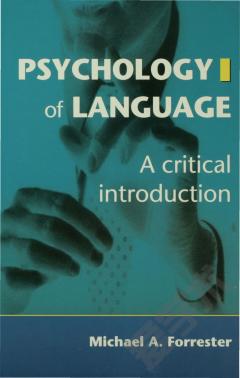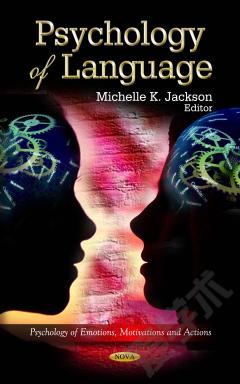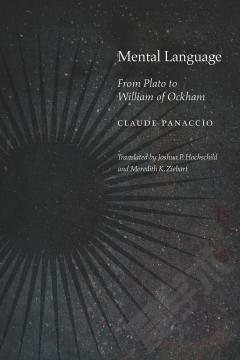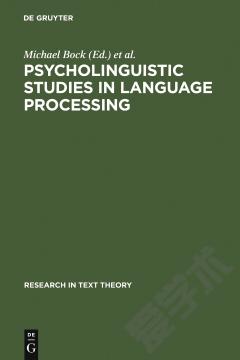Naming the Mind —— How Psychology Found Its Language
----- 命名心灵:心理学如何找到它的语言
In 1899 H. S. Jennings published a paper entitled "The psychology of the protozoan." In 1904 he published another called "The behavior of the Paramecium." The second edition of Ernst Meumann's book on the "economy and technique of memory" was published in 1908; its third edition, translated into English and published in 1913, was called The Psychology of Learning. These events serve as markers for the historical introduction into scientific practice of the two categories that would become fundamental to American psychology by the middle of this century: behaviour and learning. By the mid 1930s psychology would become almost universally defined as the science of behaviour and its principal explanatory category would be learning. While both "behaviour" and "learning" had long been part of ordinary discourse, there is no evidence that they assumed any kind of technical, scientific significance until around 1900 for the former and just before 1913 for the latter.A similar picture emerges for most, probably all, major psychological categories. "Intelligence" developed as a biological category in the 19th century but was first applied to humans in its modern psychological form in 1904. "Motivation" appeared first in education in 1916, and then in psychology only in 1928. "Personality," long a moral or theological category, then a psychiatric category, first took on its psychological meaning in the 1920s. The same decade saw the first appearance of "attitude" in its current technical, psychological sense. And psychologists did not generally speak of their subject matter in terms of "variables" until the 1930s. It is the fascinating story of how psychologists in this century came to define and speak of their objects of investigation that Kurt Danziger recounts in this book.Returning to the examples of behaviour and learning, one might ask how it happened that two categories, to which philosophers and scientists had been largely indifferent prior to the turn of the century, should have become so utterly indispensable by mid century? According to Danziger, the success of evolution theory in biology had much to do with it. Among other things, evolution implied the continuity of species. The minds of humans had to have qualitatively similar counterparts among lower animals. This recognition led to the establishment of comparative psychology as a biological discipline. But to speak of the minds of protozoa made biologists uncomfortable. Mental processes were necessarily inferred from observable movements, so why not just talk about those? As the prevailing scientific motive shifted from understanding to control, behaviour became all that really mattered since control could only be exercised from the perspective of external conditions. Thus J. B. Watson urged psychologists to forget inferring anything about internal, unobservable states and processes. Watson's stand was subsequently softened somewhat by later neo-behaviourists and behavioural scientists, but the resulting behavioural methodology remained to shape the subject matter, however it was called.But the reduction to behaviour alone left an explanatory vacuum. This was quickly filled by learning, supported by comparative psychology's emphasis on the organism's capacity to make adjustments to environmental demands. Indeed, the capacity to adapt had already in 1884 been asserted by biologists as the criterion of mind in animals. In contrast to instinct, what made animals, including human beings, different from one another was their degree of modifiability. Some organisms are more adaptive than others, and thus more successful. Another boost came from a growing concern in industry for the training of practical skills. Thus some of the earliest studies of what became know as "learning" were in telegraphy, typewriting, and stenography. The growth of standardized schooling with its need for efficiency in training was also important. The new category of learning appeared to unify the other diverse processes that had traditionally preoccupied educationists, like habit formation, memory, and association. â¦
{{comment.content}}








 京公网安备 11010802027623号
京公网安备 11010802027623号